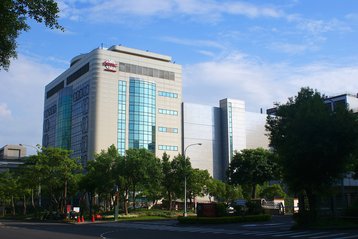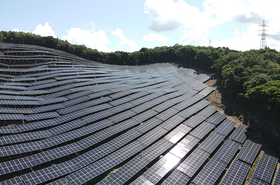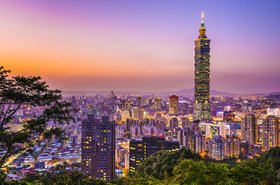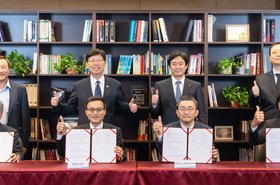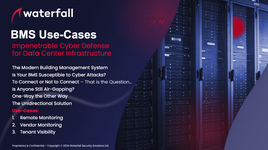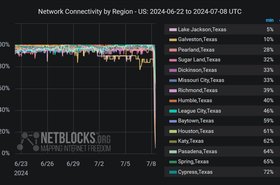The chairman of TSMC claims that a Chinese invasion of Taiwan would not give the occupying forces access to its chip fabs.
TSMC is the world's largest contract semiconductor manufacturer, and industries around the globe are reliant on its chips - including in China.
The comments, made to CNN, come as the Speaker of the US House of Representatives visited Taiwan, sparking condemnation from Beijing and raising tensions.
“Nobody can control TSMC by force,” Mark Liu said. “If you take a military force or invasion, you will render TSMC's factories not operable, because this is such a sophisticated manufacturing facility."
He clarified that this wasn't simply a matter of TSMC refusing to work with an invader, but the reality of a global supply chain and support system.
"It depends on the real-time connection to the outside world: With Europe, with Japan, with US," Liu explained. "From materials, to chemicals, to spare parts, to engineering software diagnoses - it's everybody’s [combined] effort to make this factory operable. So, if you take it over by force, you can no longer make it operable."
US military academics earlier this year said that Taiwan should adopt a ‘scorched earth policy’ and wipe out its own semiconductor foundries in the wake of any Chinese invasion as a deterrent.
He added that China is responsible for about 10 percent of its business, and that companies in China were reliant on TSMC's products. "If they need us, it's not a bad thing," he said. "Our interruption would cause great economic turmoil in China, because suddenly their most advance components have disappeared, so people will think twice about this."
He compared the potential war to Russia's invasion of Ukraine, and noted that they were very different situations, but that there were lessons to be learned. "The Ukraine war is not good for any of the sides, it is lose, lose, lose scenarios - all three sides are to draw a lesson. And we should use that to look at Taiwan. How can we avoid a war?"
Liu was also quick to note that while TSMC's operations being disrupted would be deeply damaging to Taiwan's economy, as well as that of China and the wider world, it is not the most important thing to worry about in such an invasion.
"Because this invasion, what comes after is the destruction of the world's rule-based order," he said. "The geopolitical landscape would be totally changed."
The CNN interview comes at a time of increased tensions between China and Taiwan.
US Speaker Nancy Pelosi visited Taiwan, a country that China refuses to accept is its own state, instead claiming it is a breakaway province.
Chinese Foreign Minister Wang Yi said that the US was "violating China's sovereignty under the guise of so-called democracy. Those who play with fire will not come to a good end and those who offend China will be punished."
In response to the trip, China began several military drills at Taiwan's border, shooting missiles close to the world's busiest waterways. China's defense ministry said that the drills would likely cross into Taiwan's territorial waters.
Taiwan was also hit by several cyber attacks, although it has not been possible to confirm they were state-backed. 7-Eleven stores in the country were hacked to display messages in simplified Chinese calling Pelosi a warmonger.
The visit is in start contrast to the official US policy of ambiguity - not quite admitting that Taiwan in a real country, but not quite saying it isn't, either.
Responding to questions about the trip back in July, President Biden said: “The military thinks it’s not a good idea right now. But I don’t know what the status of it is.”
The White House has since declined to publicly comment on the trip, but unofficially communicated its displeasure to journalists.

